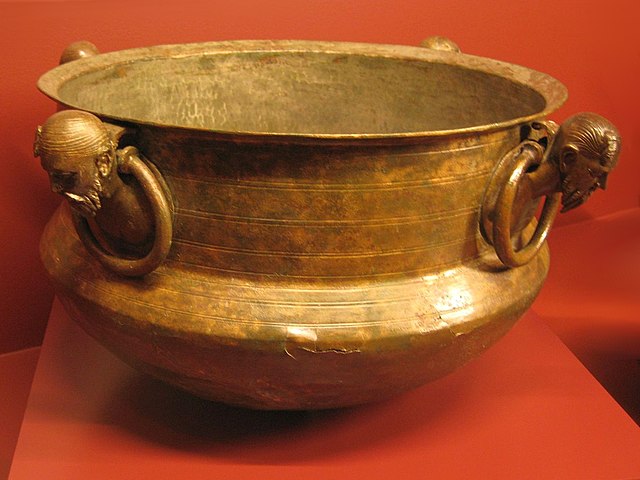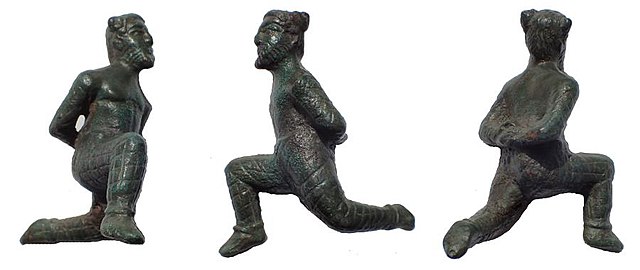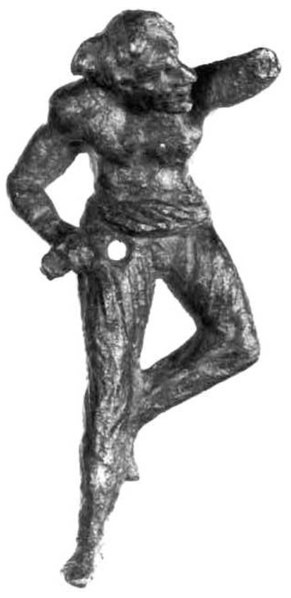Ariovistus was a leader of the Suebi and other allied Germanic peoples in the second quarter of the 1st century BC. He and his followers took part in a war in Gaul, assisting the Arverni and Sequani in defeating their rivals, the Aedui. They then settled in large numbers into conquered Gallic territory, in the Alsace region. They were defeated, however, in the Battle of Vosges and driven back over the Rhine in 58 BC by Julius Caesar.
Ariovistus
Caesar and Ariovistus (meeting before the battle) by Peter Johann Nepomuk Geiger
The Suebi or Suebians were a large group of Germanic peoples originally from the Elbe river region in what is now Germany and the Czech Republic. In the early Roman era they included many peoples with their own names such as the Marcomanni, Quadi, Hermunduri, Semnones, and Lombards. New groupings formed later, such as the Alamanni and Bavarians, and two kingdoms in the Migration Period were simply referred to as Suebian.
Mušov Cauldron, a Roman bronze cauldron found in 1988 in a Germanic chieftain's grave in Mušov, Czech Republic, dating to the 2nd century A.D. The cauldron is decorated by four cast heads of Germanic men wearing a Suebian knot hairstyle
Roman bronze statuette of a Suebian captive. First to 3rd century AD.
Suebi ceramics. Lobdengau-Museum, Ladenburg, Germany
Suebi Germanic with nodus found in Apt, France






